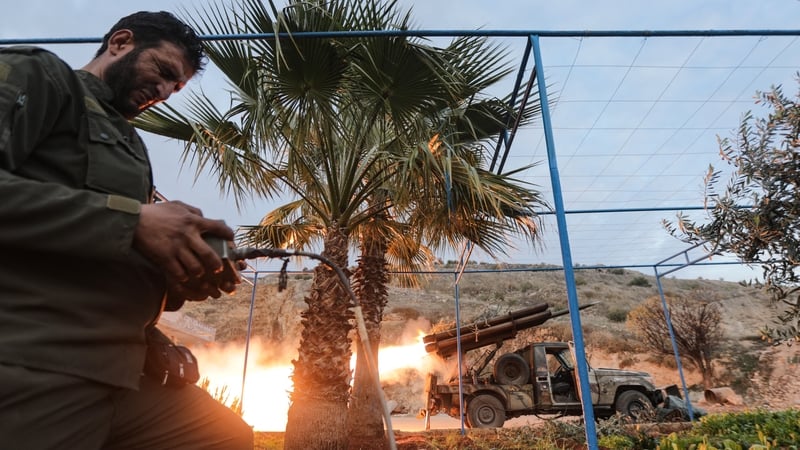The Syrian army on Thursday said it had lost control of the key central city of Hama and withdrawn its troops after rebel forces broke through its defences.
The insurgents, who are led by the Islamist group Hayat Tahrir al-Sham (HTS), began their lightning advance a week ago and quickly seized swathes of territory, including Syria’s second city Aleppo.
The rebels led by the Islamist group Hayat Tahrir al-Sham (HTS) stormed the city and, after fierce fighting, claimed to have seized its prison and released inmates.
After a night of violent clashes, the rebels entered Hama “from several sides” and were engaged in street fighting with Assad’s forces, said the Syrian Observatory for Human Rights war monitor.
By early Thursday afternoon, Syria’s army admitted it had lost control of the strategically located city seen as crucial in its efforts to protect the capital and seat of power, Damascus.
Rebel leader Abu Mohammed al-Jolani has said there will be “no revenge” after his group seized the Syrian city of Hama, where government forces crushed a Muslim Brotherhood uprising decades ago.
“I ask God almighty that it be a conquest with no revenge,” he said in a video message.
The message came after an announcement that the fighters had entered Hama “to cleanse the wound that has endured in Syria for 40 years”.
Syria’s army acknowledged that it had lost control of the strategic city for the first time since war broke out in 2011, amid a lighting rebel offensive.
The rebels said that “our forces entered Hama central prison and liberated hundreds of prisoners”.
The loss of Hama, Syria’s fourth-largest city, is a blow to the government.
There were major demonstrations there against President Bashar al-Assad in 2011, just days after the fall of Aleppo, the country’s second city.
In 1982, in a chapter that remains among the darkest in the country’s bloody history, the Syrian government cracked down in Hama on an uprising by the Muslim Brotherhood.
The group was at the time the main opposition to then-president Hafez al-Assad, father of the current leader, and carried out several attacks.
In February 1982, Muslim Brotherhood members killed cadres of the ruling Baath Party in Hama, triggering brutal reprisals during a military offensive to quell the uprising using artillery and tanks.
Various sources estimate the deaths between 10,000 and 40,000 in the besieged and isolated city over about one month.
Hafez al-Assad’s brother, Rifaat, carried out the repression as head of the “Defence Brigades”, an elite force of the authorities.
The action earned him the nickname “Butcher of Hama.”


